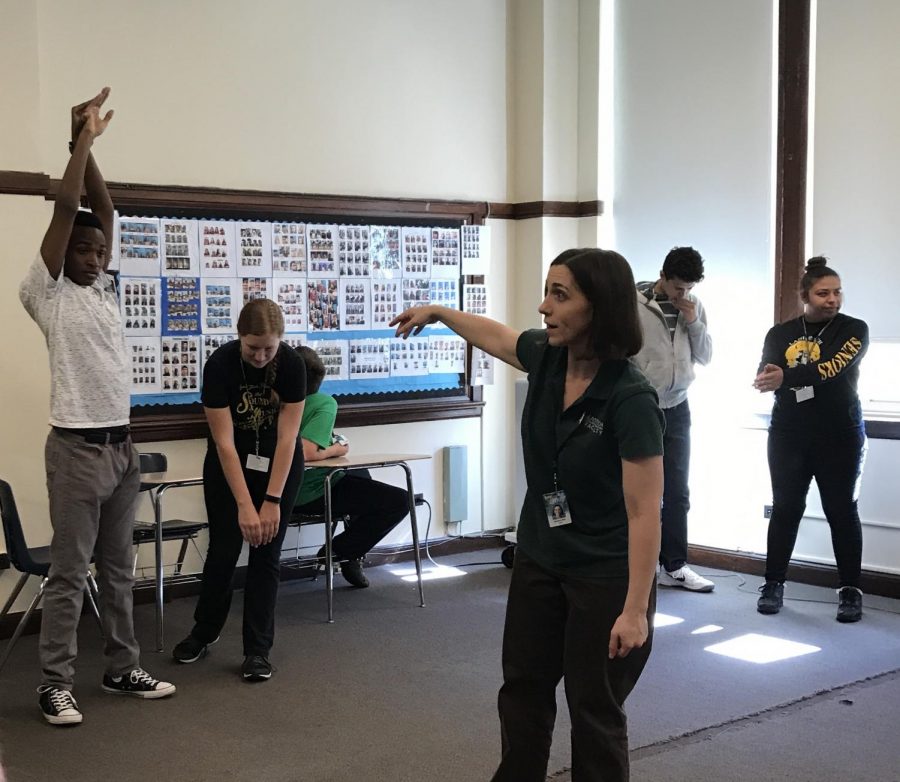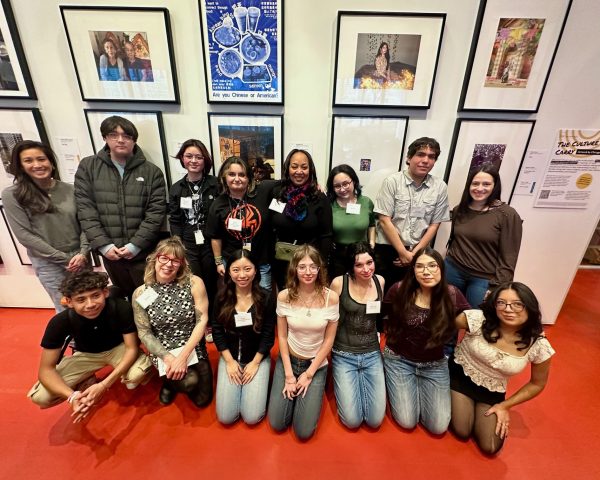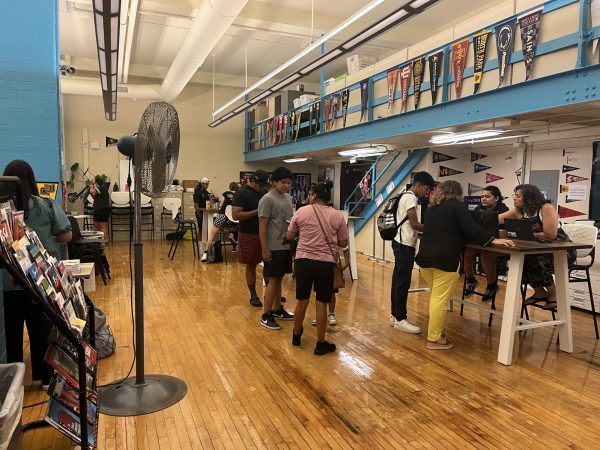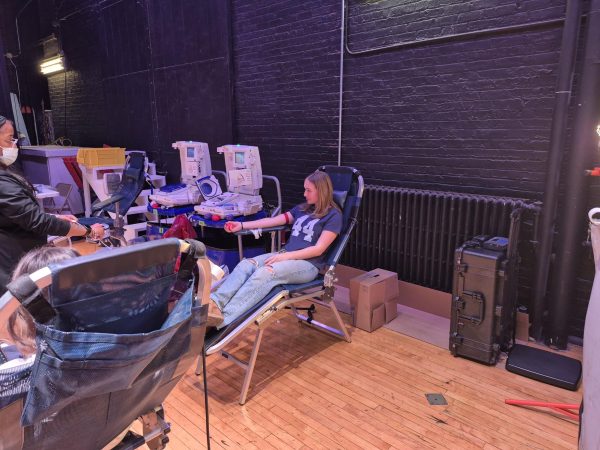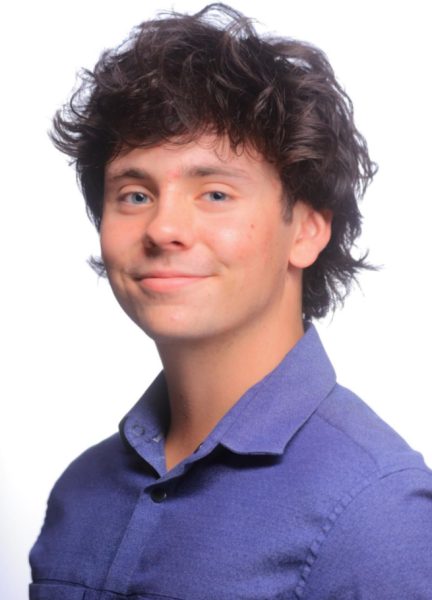New elective, Adaptive Drama, takes the stage
Adaptive Drama teacher, Ms. Meacham, teaching her students how to play a drama game after their warm-up.
Every day during sixth period, 25 students gather in Room 210, where they bring their acting skills to life. The class was learning how to speak in different accents one day and one of the students from the Cluster Program was quickly able to mimic the accent of a British man.
“One of the students just picked it up and was able to imitate it again,” Drama teacher Ms. Meacham said. “So not only to hear it once and be able to imitate it, but to get the accent and the inflection and all of it was incredible.”
Adaptive Drama is one of the newest electives for the 2017-18 school year. Assistant Principal Ms. Hart came up with the idea of the course, which was then presented to Meacham, who developed the curriculum.
“I’m always looking for the best way to integrate the students from the Cluster Program,” Hart said. “My goal for them is to have the same experience as any other Lane Tech student, that’s the bottom line. I thought maybe that drama should be the next thing that we try, and it’s going really well from what I have seen and heard.”
The Cluster Program serves 62 students within the Special Education Department, according to Hart.
Meacham developed a curriculum that she thought would challenge the students as performers, as well as benefit everyone involved.
“The goal of this is a cross between Drama I and a Drama Production class,” Meacham said. “So the first half of the year, we’re going to focus on ensemble building, basic skills in terms of acting and character, and then second semester we’re going to focus more on storytelling.”
There are 12 leaders and 13 students from the Cluster Program, according to Meacham. She said that it is highly encouraged that the leaders have taken either a Drama class or an Adaptive class prior to enrolling in Adaptive Drama.
“It’s really a benefit that you either have really great knowledge of the Drama curriculum, that you know the games, that you know some of the activities so you can kind of help guide or even take a directing role,” Meacham said.
According to Adaptive Drama leader, Christeena Jojo, Div. 871, some of the responsibilities as a leader are to help students with their acting skills and brainstorm creative ideas. She said that she enjoys being a part of the class because of the fun and relaxing environment.
“They’re just like us; they’re students that want to have friends and have fun,” Jojo said.
The class involves a lot of different activities from acting exercises to body stretches to learning how to warm up your voice, according to Janai Vazquez, a student from the Cluster Program.
“We learn and perform ‘do nows’ in front of the people in our class and if they like it they give you stickers to say you did a good job,” Vazquez said. “But you need to work really hard to get it right.”
According to Meacham, who has been teaching here for over a decade, Adaptive Drama allows her to witness and create something new.
“I am always completely astonished by their creativity — they’re incredibly funny, they’re very bright, they’re great storytellers,” Meacham said. “There hasn’t been a dull moment in class. I leave class every day just astonished and inspired. It’s such a wonderful experience as a teacher to have.”
There has been discussion of an Adaptive Drama II class in the future, according to Hart.
“Ms. Meacham and I have already discussed the possibility of Drama II with leaders just to see what that curriculum would look like,” Hart said.
At the end of the school year, Meacham plans on putting a drama production of pieces that students will write with their leaders.
“My goal is to have the auditorium space with the curtain closed so that it is like being in a black box theater,” Meacham said. “The audience will sit on the stage and so will the performers, so they will be able to interact in a much closer environment, which I think is beneficial to all involved.”
Your donations directly fund the Lane Tech student journalism program—covering essential costs like website hosting and technology not supported by our school or district. Your generosity empowers our student reporters to investigate, write, and publish impactful stories that matter to our school community.
This website is more than a publishing platform—it's an archive, a research tool, and a source of truth. Every dollar helps us preserve and grow this resource so future students can learn from and build on the work being done today.
Thank you for supporting the next generation of journalists at Lane Tech College Prep!

Clarissa Corral is a senior at Lane. She is very passionate about writing and journalism is something that she would like to pursue in college. Her dream...

